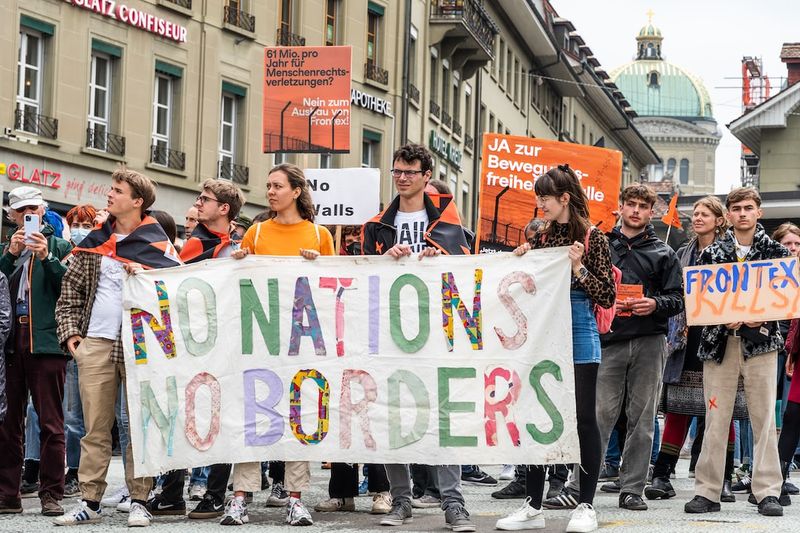Table of Contents
The Implications of Russian Legislation on Transgender Rights
A Violation of Human Rights
The recent legislation passed by the Russian State Duma, imposing a blanket ban on “sex change” procedures, raises serious concerns regarding the human rights of transgender individuals in Russian society. Amnesty International’s Russia Director, Natalia Zviagina, rightly points out that the adoption of this legislation demonstrates an utter disregard for the rights and well-being of transgender people.
The Scope of the Legislation
The new amendments not only prevent individuals from changing their gender markers in official documents but also impose restrictions on aspects of their personal lives. These provisions include prohibiting transgender individuals from adopting children and nullifying marriages in which one partner has changed their gender marker. By adopting such measures, the Russian authorities are effectively discriminating against transgender persons and relegating them to second-class citizens.
The Impact on Transgender Individuals
The legislation’s ban on gender-affirmative interventions, including hormone replacement therapy, is particularly concerning. This restriction will not only deny transgender individuals access to essential healthcare services but also inflict potentially unbearable suffering on them. Furthermore, this restriction poses grave risks to their mental health, highlighting the damaging consequences of denying transgender individuals the necessary medical care to align their gender identity with their physical being.
A Step Backwards for Russian Society
The Russian authorities must recognize that the implementation of this harmful legislation will not only directly impact transgender individuals but also damage the fabric of Russian society as a whole. By perpetuating discrimination and denying equal rights to transgender individuals, the government risks eroding social cohesion and fostering a society that fails to embrace diversity and inclusivity. This legislation sends a dangerous message that those who do not conform to society’s expectations of gender identity will be marginalized and dismissed.
Recommendations and Conclusion
Reconsideration and Action
In order to protect the human rights of all individuals, regardless of their gender identity, it is imperative that the Russian authorities reconsider this harmful legislation. Amnesty International and other human rights organizations are calling for an immediate reversal of these measures. The government must acknowledge that transphobic legislation not only violates the rights of transgender individuals but also hampers progress towards a more equal and just society.
Support from the International Community
The international community, including international human rights organizations, world leaders, and civil society, should speak out against this legislation and put pressure on the Russian government to reverse these discriminatory measures. By jointly condemning the violation of transgender rights, we can foster global solidarity and promote social justice for all.
Advocacy and Activism
At a grassroots level, it is crucial for activists, organizations, and individuals to continue advocating for transgender rights. By raising awareness, providing support, and promoting inclusive policies, we can work towards dismantling discriminatory practices and ensuring equal rights and protections for transgender individuals around the world.
In conclusion, the recent legislation passed by the Russian State Duma imposing a blanket ban on “sex change” procedures is a clear violation of transgender rights and an affront to the principles of equality and human dignity. The Russian authorities must reconsider this harmful legislation, protect the rights of transgender individuals in Russian society, and take steps towards building a more inclusive and equitable future for all.

<< photo by Mortaza Shahed >>
The image is for illustrative purposes only and does not depict the actual situation.
You might want to read !
- Taiwan’s Potential as a Leading Regional Advocate for Human Rights Requires Long-Term Dedication: Amnesty’s Secretary General
- Reflecting on the Legacy of Chinese Nobel Laureate Liu Xiaobo
- Endemic Corruption and Authoritarianism Mar King’s Grip on Belarus
- Celebrating Six Months of Victories for Human Rights
- Deep Sea Mining: An Urgent Call to Halt an Impending Environmental Catastrophe
- Global Uplift: Bright Spots from around the World in June
- Strengthening Global Action to Combat Rights Abuses in Nicaragua
- The Crucial Imperative: Putting Human Rights at the Forefront of the EU-CELAC Summit
- Paving the Way: Nepal’s Monumental Leap for Marriage Equality
- Lebanon’s Controversial Approach to Syrian Deportations: Examining the Armed Forces’ Role
- The Silence Continues: US Halts Critical Investigation in Louisiana’s Cancer Alley
- France’s Nahel Shooting: Addressing Police Firearms Rules and Systemic Racism in Law Enforcement
- Ensuring Adequate Nutrition for Pregnancy and Breastfeeding: Sri Lanka’s Government must take action
- The Fight for Justice: Guinea’s Landmark 2009 Stadium Massacre Trial Resumes
- “Mali’s Worsening Crisis: The Escalating Brutality of Islamist Armed Groups”
- Protesting for Change: From the Arctic to the Amazon
- Eswatini’s Uphill Battle: Seeking Justice for 2021 Violence
- USA: The Aftermath of Overturning Roe vs. Wade: A Deepening Human Rights Crisis
- Japan’s Landmark LGBT Law: Promoting Equality and Inclusion
- Viet Nam’s Suppression of Dissent: Calls for the Immediate Release of Wrongfully Sentenced Activist